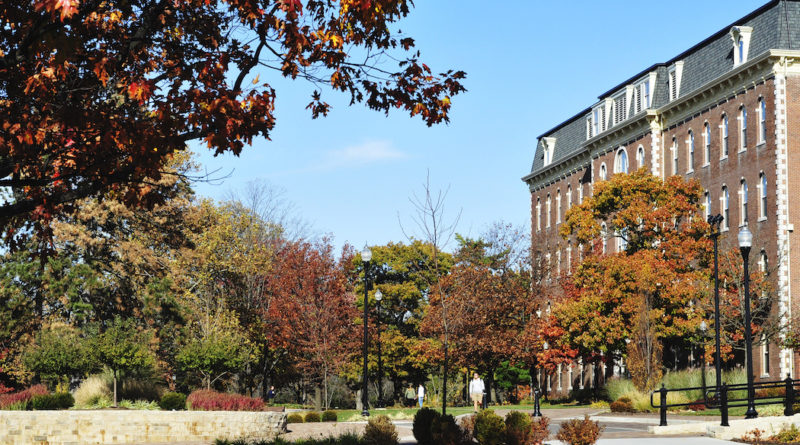UD Staff Signs Petition over Health Concerns for Fall Semester
Over 280 University staff and alumni have signed a petition calling for more action to be taken in efforts to keep staff and students safe this fall. Photo courtesy of Flyer News.

Kaitlin Lewis
News Editor
A group of University of Dayton employees released a petition last Monday over health concerns for staff and students returning to campus while COVID-19 cases continue to rise.
The group, who named themselves UD Solidarity, addressed their petition to President Eric Spina and identified four areas of action they believe still need to be addressed. So far, the petition has since received over 280 signatures from staff, faculty and UD alumni.
UD Solidarity held two press events on Tuesday, July 14, both in-person and online, to address their concerns to the public. Dr. Joel Pruce, an associate professor in the Political Science department and member of UD Solidarity, said that with student returning to campus in under a month, the group did not want to delay action any further
“I know the senior groups and the advisory panel are working on some of these things we address, or at least I hope that they are,” Pruce said. “But the fact that now staff, and very soon students, are coming back to campus without these health measures in place is very much concerning.”
The main request in question is for staff to have “the autonomy to make decisions regarding their well-being and the essential equipment to protect themselves while at work.” In other words, staff and faculty members want the ability to choose whether to conduct in-person or online instruction based on their own discernment and health concerns. Other action steps include plans for COVID-19 testing on campus, updated ventilation systems to increase airflow in classrooms, and paid-leave for staff members who become ill or are exposed to the virus.
“This is absolutely a matter of life and death,” Pruce said. “There will be outbreaks here, there will be illness here, and god-forbid something happens that causes the death of a student, faculty or staff member.
Pruce is one of seven staff members who first formed UD Solidarity during the 2020 spring semester. In response to instruction moving online, Pruce and others anticipated a large financial hit for the University, which had already begun financial stewardship for the 2019-20 school year. With further budget cuts on the horizon, UD Solidarity released the “Statement of Commitment to Solidarity, Shared Sacrifice, and Action” which outlines six principles the group believed should be upheld even during a time of financial strain. The statement received 280 signatures from UD staff and was sent to President Spina in April.
UD Solidarity continued to meet after furloughs and firings were announced in late April. The group provided a space through Zoom meetings to hear from staff members who were now facing unemployment in an economic rescission. Beyond furloughed employees, who originally didn’t have a date of return, 70% of non-tenured track lectures had their contracts delayed for the 2020-21 school year, meaning they also didn’t know if they had a job come fall.
“People feel as though notions of community contain values that were not being expressed during this time,” Pruce said. “They felt left out… demoralized. They felt they weren’t considered, like they were disposable. These are their words, not mine.”
The emphasis on amplifying the voices of those unheard is also seen in the current petition, with a section dedicated to protecting vulnerable employees, such as women and caregivers, who were “disproportionately impact(ed)” by furloughs and layoffs.
Pruce said that while campus “belongs” to staff and faculty, the student population has a large influence on how the fall 2020 semester will run.
“Students have a lot of sway on campus, and rightfully so,” Pruce said. “Students who share health and safety concerns should speak up about them. It’s going to rely on them doing the right thing to protect each other.”
UD Solidarity is not only concerned with the staff’s health but the safety of students, too. Pruce understands many students are excited to get back to campus in less than a month but wants them to be mindful of the health risk that “normal” campus life poses.
“There’s going to be no returning to the fall semester of 2019,” Pruce said. “And everyone wants that. I want to return to the semester. But there’s a lot of things I would prefer to be different. I would prefer that 130,000 people weren’t dead.”

